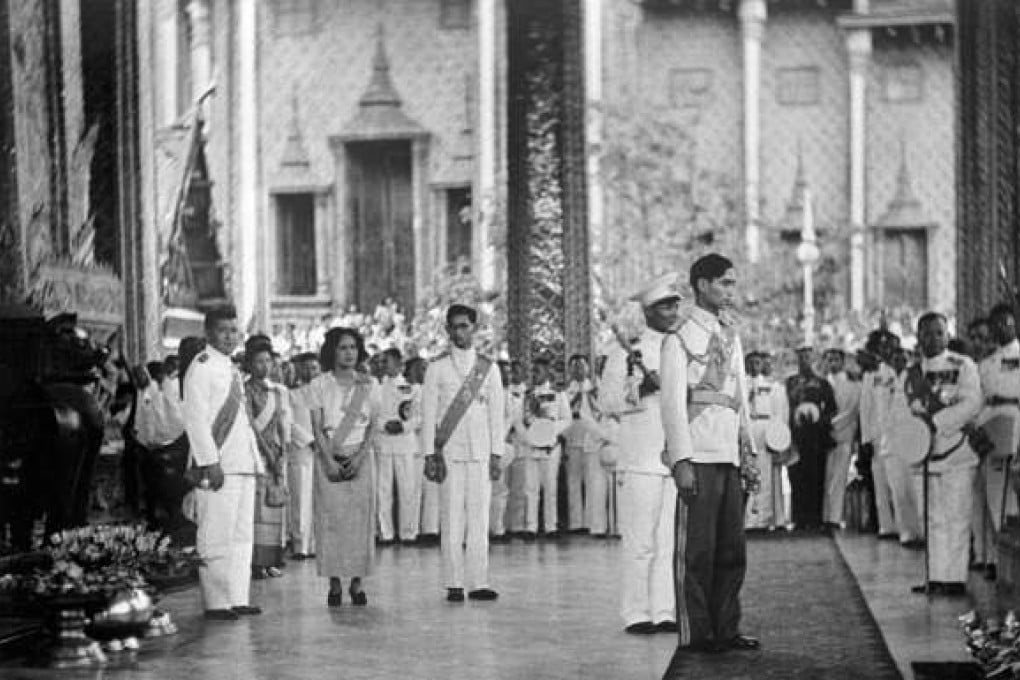What Thailand’s King Bhumibol really stood for
Monarch’s prowess as a ruler was as surprising as his ascension to Thailand’s throne – yet penned in by the military, he both raised and tamped down his followers’ hopes

It has happened at last. Enfeebled for years, King Bhumibol of Thailand has passed. He had nearly reached 90. He wasn’t seen much lately, at least in the way that we once remembered him. Mostly sequestered in a royal hospital suite, he was occasionally brought out for anniversaries, though in specially outfitted rigs and propped up in stiffly starched uniforms. And he would gaze yonder, barely seeming to take note.
Yet these appearances sufficed for many of his subjects. They took comfort in his frozen visage, finding their place in the Thai social order which the king, possessing divine status, infused with legitimacy and righteousness. The grieving evident after his departure makes convincing the emotiveness with which he was regarded.

But what is this social order in Thailand that the king reaffirmed? Its dynamic was once very different. The great Chakri kings of the 19th and early 20th centuries, Mongkut and Chulalongkorn, were absolute monarchs, their dynasties anchored in mystical qualities, constructed legacies, and sacred regalia. But they came under siege from the muscular British and French colonialism that pressed in on all sides. Confronting the challenges of rapid modernisation, Mongkut and Chulalongkorn felt that their kingdoms could survive only by doing the same.
Thailand’s king dies: nation plunges into mourning – and uncertainty
To this end, they vastly upgraded their frail bureaucratic and military apparatuses, therein discovering new forms of legitimacy through secular capacity. They recruited European functionaries for guidance. They harnessed Thai agriculture to regional rice markets. And in nurturing Thai generals and ministers, Chulalongkorn even abolished prostration, an archly ritualised form of ascriptive status and obeisance. And it worked. Alone among the territories of Southeast Asia, Thailand’s social order remained coherent and its politics autonomous.